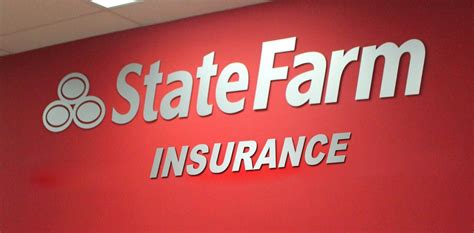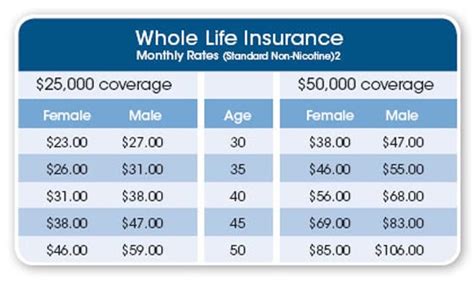How Do Insurance Companies Pay Out Claims

The process of how insurance companies pay out claims is a critical aspect of the insurance industry, ensuring policyholders receive the financial protection they deserve when unforeseen events occur. This intricate process involves various steps, each designed to assess, verify, and ultimately settle claims efficiently and fairly. From the initial notification to the final disbursement, insurance companies employ a systematic approach to ensure prompt and accurate payouts, fostering trust and satisfaction among their policyholders.
The Claims Assessment and Verification Process

When an insured individual experiences a covered loss, the first step is to notify their insurance provider. This notification can be made through various channels, including phone calls, online portals, or in-person visits to an insurance agent or broker. The insurance company then assigns a dedicated claims adjuster or representative to handle the case.
The claims adjuster's primary role is to thoroughly assess the claim, verifying its validity and ensuring compliance with the terms and conditions outlined in the insurance policy. This involves a detailed examination of the policyholder's documentation, such as proof of ownership, estimates, and supporting evidence related to the loss. Adjusters may also conduct site visits to evaluate the extent of the damage and assess the accuracy of the claim.
Data Analysis and Policy Review
During the assessment phase, adjusters meticulously analyze the submitted data, comparing it against the policyholder’s insurance policy. This review ensures that the claim falls within the coverage scope and adheres to the specific terms and conditions outlined in the policy. By thoroughly examining the policy, adjusters can identify any exclusions or limitations that may impact the claim’s approval or payout amount.
| Claim Type | Assessment Focus |
|---|---|
| Property Damage | Review of building and contents coverage, deductibles, and additional living expenses. |
| Liability Claims | Evaluation of policyholder's legal responsibility and policy limits. |
| Medical Claims | Verification of coverage for specific medical treatments and expenses. |

Once the adjuster has a comprehensive understanding of the claim and its alignment with the policy, they proceed to determine the claim's value. This valuation process considers various factors, including the nature of the loss, the extent of the damage, and applicable depreciation or depreciation waivers.
The Claims Settlement Process

After a thorough assessment and valuation, the insurance company moves forward with the settlement process. This stage involves communicating the claim’s status and payout amount to the policyholder and facilitating the actual payment.
Settlement Communication
Insurance companies prioritize clear and transparent communication throughout the settlement process. They provide detailed explanations regarding the claim’s acceptance or denial, the rationale behind the decision, and the specific reasons for any adjustments to the original claim amount.
For accepted claims, the insurance company will outline the payout amount, any applicable deductibles or co-pays, and the expected timeframe for receiving the settlement funds. This communication helps policyholders understand the financial implications of the claim and plan accordingly.
Payment Methods and Timelines
Insurance companies offer various payment methods to accommodate policyholders’ preferences and needs. Common payment options include checks, direct deposits, or specialized payment platforms. The choice of payment method may depend on factors such as the claim’s complexity, the policyholder’s location, and the insurance company’s internal processes.
The timeframe for claim payouts varies based on the claim's complexity, the insurance company's internal processes, and regulatory requirements. Simple claims with straightforward documentation may be resolved within a few days, while more complex claims requiring additional investigation or expert assessments may take several weeks or even months to finalize.
| Claim Type | Average Payout Timeline |
|---|---|
| Auto Claims (Minor) | 3-7 days |
| Homeowners Claims (Storm Damage) | 2-4 weeks |
| Health Insurance Claims (Routine Medical Procedures) | Within 30 days |
It's important to note that insurance companies strive to expedite the payment process while maintaining accuracy and compliance with regulatory standards. They aim to strike a balance between prompt payouts and thorough claim investigations to ensure fairness and prevent potential fraud.
Handling Disputes and Appeals
In some instances, policyholders may disagree with the insurance company’s claim decision or payout amount. In such cases, insurance companies provide mechanisms for dispute resolution and appeals.
Mediation and Alternative Dispute Resolution (ADR)
Insurance companies often offer mediation or ADR services to facilitate resolution between the policyholder and the insurance provider. These processes involve neutral third parties who assist in negotiating a mutually acceptable settlement, avoiding the need for lengthy and costly litigation.
Mediation sessions provide a confidential and informal setting where both parties can express their concerns and work towards a resolution. ADR processes, such as arbitration, offer a more structured approach with binding decisions, ensuring a timely resolution to the dispute.
Appeal Processes
If mediation or ADR efforts fail to reach a satisfactory outcome, policyholders can initiate formal appeal processes. Insurance companies typically have established procedures for appeals, which involve reviewing the initial claim decision and any new evidence or arguments presented by the policyholder.
The appeal process may involve additional documentation, expert reviews, or further investigations. It provides policyholders with an opportunity to present their case and seek a fair resolution. Insurance companies aim to handle appeals efficiently and impartially, ensuring that all relevant factors are considered in reaching a final decision.
Conclusion
The process of insurance claim payouts is a delicate balance between prompt service and thorough assessment. Insurance companies strive to provide efficient and fair claim settlements, recognizing the importance of financial protection for their policyholders. By implementing systematic assessment, valuation, and settlement processes, insurance providers uphold their commitment to delivering timely and accurate payouts, fostering trust and satisfaction among their insured community.
How long does it typically take for an insurance company to pay out a claim?
+The timeline for claim payouts can vary based on several factors, including the claim’s complexity, the insurance company’s internal processes, and regulatory requirements. Simple claims with straightforward documentation may be resolved within a few days, while more complex claims requiring additional investigation or expert assessments can take several weeks or even months.
What happens if I disagree with the insurance company’s claim decision or payout amount?
+In cases where you disagree with the insurance company’s decision or payout amount, you have the option to initiate a dispute resolution process. Insurance companies often provide mediation or alternative dispute resolution (ADR) services, allowing you to negotiate a mutually acceptable settlement. If mediation or ADR efforts are unsuccessful, you can pursue a formal appeal process, where your case will be reviewed and reconsidered based on new evidence or arguments.
Can I choose how I receive my claim payout?
+Yes, insurance companies typically offer various payment methods to accommodate policyholders’ preferences. Common payment options include checks, direct deposits, or specialized payment platforms. The choice of payment method may depend on factors such as the claim’s complexity, your location, and the insurance company’s internal processes.



